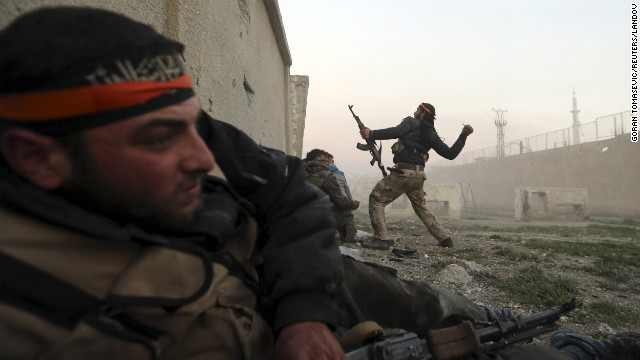
Last week, Damascus saw what some consider the heaviest infighting in the city since the uprising broke out almost two years ago. The conflict is further escalating, leading to a worst-case scenario, and many believe that makes it harder to envision a positive end. There are three possible outcomes, and none of them seems optimistic enough: either the regime wins, either the rebels root the latter, either the civil war goes on following a Lebanon-type pattern. An eventual end to the current stalemate would undoubtedly require external intervention, insofar as all countries involved agreed to a plausible unified blueprint, preferably following the Geneva steps.
Some saw a glimpse of light when Mr Moaz Al-Khatib, leader of the unified opposition, put forward a proposal whereby the body he represents would be ready to negotiate with the untainted elements (or at least the ones whose hands are not stained by blood) of Assad’s regime, particularly with the country’s Vice-President, under several conditions: it first has to release 160,000 political prisoners and renew all expired passports held by members of the Syrian diaspora. However, and even though this initiative was heatedly and swiftly embraced by much of the international community present in a security conference in Munich (specially besieged Russia and Iran), both the Syrian National Council (dismissing it as Khatib’s personal opinion) and other influential countries rejected it, notably Turkey, whose Foreign Minister Ahmet Davutoglu said that “dialogue between the [Syrian] regime and the opposition will not produce a solution”. Leaders attending the Cairo Summit of the Organization of Islamic Cooperation have also recently called for greater efforts leading to a negotiated end, according to a peace plan drafted by Egyptian President Morsi. What I found more interesting is that, contrary to past international meetings, not a leader has still openly asked for Bashar Al-Assad’s resignation, therefore stressing a spark change of tack in the stance of most of the countries like, for instance, Saudi Arabia and Turkey itself.
Even though its Charter prohibits any negotiations with the Syrian regime, the opposition in exile will discuss this and other proposals at a meeting they will soon hold in Cairo. The modest point will surely be whether they will offer Mr Assad the opportunity to escape prosecution if he resigns and leaves the country.
These attempts seemed futile for many, though, as the regime appears not to be really looking forward to an actual dialogue and keeps saying it is open to talks with any opposition members who reject violence and, furthermore, the Syrian people won’t accept dialogue leaving any part of the regime in place. After days of not officially responding to the invitation, an aide to the president said on Sunday the government is open to talks and to address the passport issue, but not necessarily the release of prisoners. What is more, the government has now announced it is ready to start a dialogue with the opposition forces, provided that this occurs without preconditions. All in all, more empty words against a background of massacre and suffering. Or am I wrong?


